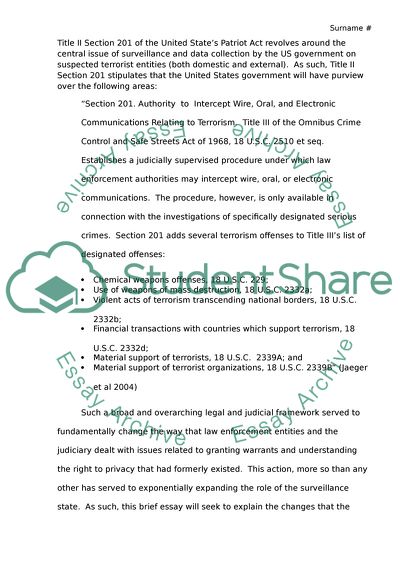Cite this document
(Civil Liberties, Emergency Powers, and the Patriot Act Research Paper, n.d.)
Civil Liberties, Emergency Powers, and the Patriot Act Research Paper. Retrieved from https://studentshare.org/politics/1785619-the-usa-patriot-act-title-ii-section-201
Civil Liberties, Emergency Powers, and the Patriot Act Research Paper. Retrieved from https://studentshare.org/politics/1785619-the-usa-patriot-act-title-ii-section-201
(Civil Liberties, Emergency Powers, and the Patriot Act Research Paper)
Civil Liberties, Emergency Powers, and the Patriot Act Research Paper. https://studentshare.org/politics/1785619-the-usa-patriot-act-title-ii-section-201.
Civil Liberties, Emergency Powers, and the Patriot Act Research Paper. https://studentshare.org/politics/1785619-the-usa-patriot-act-title-ii-section-201.
“Civil Liberties, Emergency Powers, and the Patriot Act Research Paper”, n.d. https://studentshare.org/politics/1785619-the-usa-patriot-act-title-ii-section-201.


